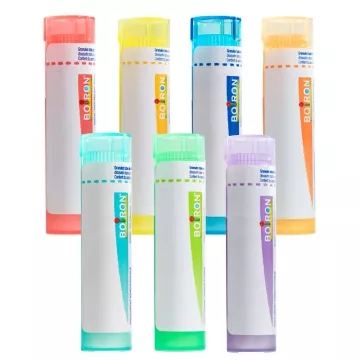

What is a runny nose and what are its main causes?
Runny nose, often referred to as rhinorrhea, refers to the excessive presence of mucus produced by tissues and blood vessels in the nose. This phenomenon can be triggered by a variety of factors, including allergies, infections such as colds or flu, environmental irritants such as pollution or smoke, and cold or dry weather conditions.
Allergies are a frequent cause of runny nose. Allergens such as pollen, dust, dust mites or animal hair can trigger an immune system reaction, which releases histamine and other chemicals, causing swelling of the nasal mucosa and increased mucus production.
How can a runny nose be treated?
Treatment of a runny nose depends largely on its underlying cause. For allergy-related cases, antihistamines or corticosteroid-based nasal sprays can be effective in reducing symptoms. In the case of an infection, such as a cold, simpler remedies such as increasing hydration, using nasal saline solutions or resting may suffice to relieve symptoms.
In some cases, modifications to the living environment can also help prevent the onset of symptoms, such as maintaining adequate humidity levels in the home, avoiding known allergens, or wearing a mask to protect against external irritants.
What are the potential complications of an untreated runny nose?
While generally benign, an untreated runny nose can sometimes lead to more serious complications. Among these, otitis media or middle ear infection is common, especially in children. Mucus build-up can also lead to sinusitis, an inflammation or infection of the sinuses, which can become chronic if not properly treated.
It is therefore crucial to monitor the evolution of symptoms and consult a healthcare professional if the runny nose persists beyond a few weeks, or is accompanied by fever, severe headaches or any other unusual symptoms.
When should I consult a doctor about a runny nose?
We recommend that you consult a doctor about a runny nose in the following cases: if the discharge is persistent and does not improve with basic treatments, if the discharge turns yellow-green or is accompanied by blood, or if other symptoms such as fever, facial pain or blurred vision appear. These signs may indicate a more serious infection requiring specific treatment.
What are the differences between a runny nose due to an allergy and a runny nose due to a cold?
A runny nose due to allergy is often characterized by clear, watery mucus, and may be accompanied by itchy eyes, frequent sneezing and an itchy sensation in the nose or throat. Allergic symptoms tend to persist as long as the individual remains exposed to the allergen concerned. In contrast, the runny nose caused by a cold is usually accompanied by thicker mucus, and can include symptoms such as a sore throat, nasal congestion, coughing and a general feeling of discomfort. Cold symptoms tend to resolve themselves within a week to ten days.
Are there any natural remedies for a runny nose?
Yes, some natural remedies can help relieve a runny nose. Steam inhalation, for example, can help thin mucus and clear nasal passages. Using eucalyptus or peppermint in warm water for these inhalations can provide additional relief. Other options include applying warm compresses to the face to ease congestion, or drinking hot tea with honey and lemon, which can soothe the throat while helping to clear mucus.
How to prevent a runny nose when suffering from seasonal allergies?
To prevent runny nose associated with seasonal allergies, it's advisable to minimize exposure to allergens. This may involve staying indoors when pollen counts are high, using air purifiers to reduce the presence of allergens in the home environment, and regularly washing sheets and clothes to remove traces of pollen. In addition, consulting an allergist and possibly starting preventive treatment, such as antihistamine nasal sprays or desensitization cures, can be an effective strategy.
What impact does a runny nose have on quality of life?
A constant runny nose can significantly impact a person's quality of life. Symptoms can disrupt sleep, diminish concentration and affect performance at work or school. What's more, if nasal discharge is visible, it can cause embarrassment and social discomfort. Treating symptoms effectively is therefore crucial to maintaining a good quality of life and limiting the negative impacts of this condition.
Can a runny nose be a symptom of more serious medical conditions?
Although often benign, a runny nose can sometimes be an indicator of more serious conditions. For example, a runny nose that persists for long periods without apparent explanation could be a sign of nasal polyps or more serious conditions such as chronic sinus infections, or even in rare cases, immune disorders or nasal tumors. It's important to consult a doctor if symptoms persist or worsen, to rule out these potentially serious conditions.